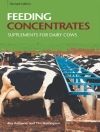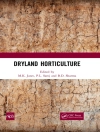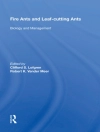This edited volume analyzes land utilization data from farm surveys taken in China between 1929 and 1933. This data, which was the foundation for John Lossing Buck’s seminal work
Land Utilization in China (1937), was thought lost to history until rediscovered in 2000. The book presents the first modern analyses of agricultural economics in Republican China using Buck’s micro-data, covering important topics such as nutritional poverty, tenancy issues, land productivity, surplus labor, workers’ incomes, credit supply, and regional differences. Through using modern analytical methods, this book presents a more accurate picture of the agricultural economy in the Republican Era and will be of particular interest to agricultural economists, economic historians, and Chinese studies scholars.
Tabela de Conteúdo
1 China’s Agriculture in the 1930s: An Overview.- 2 John Lossing Buck and Land Utilization in China.- 3 Calamities and Conflict Affecting Rural China 1929–1933.- 4 The Discovery and Restoration of Buck’s Original Data.- 5 Reliability of John Lossing Buck’s Land Utilization Survey Data: A Preliminary Test of Grain Yields.- 6 Tenancy Issues in Northwest China During the Republican Era.- 7 Regional Differences in Surplus Agricultural Labor During China’s Republican Era, Based on Buck’s Rural Survey Data.- 8 Agricultural Poverty and Inequality in 1930s China: Estimates of Gini and Engel Coefficients from Buck’s Data.- 9 An Analysis on the Inverse Relationship between Yield and Farm Size in Rural China in the 1930s.- 10 The Relationship Between Farm Size and Land Productivity in Early Twentieth-Century China.- 11 Farm Credit Demand and Supply in 1930s China.- 12 The Change in China’s Cropland Utilization and Productivity Over Nearly a Century in China: A Comparison Study Based on Buck’s Survey.- 13 A Comparison of Certain Changes in Chinese Agricultural Operations between Buck’s Republican Era and Modern China.- 14 Concluding Thoughts.
Sobre o autor
Hao Hu is Professor in the College of Economics and Management at Nanjing Agricultural University, China. He was the principal investigator on the project “Electronic and Database Construction of Buck’s Data” from 2012 to 2015. He specializes in animal husbandry economics and agricultural economic history,
Funing Zhong is a Distinguished Professor and Vice Chairman of Academic Committee of Nanjing Agricultural University. His research interests cover agricultural production and trade, as well as rural development. The restoroation work of Buck’ data was started under his lead as the Dean of the College of Economics and Management, Nanjing Agricultural University.
Calum Turvey is the W.I. Myers Professor of Agricultural Finance in the Charles H. Dyson School of Applied Economics and Management, S.C. Johnson College of Business, and College of Agricultural and Life Sciences at Cornell University, USA. He is the editor of Agricultural Finance Review and conducts research in the area of agricultural finance, risk management and agricultural policy with regional interests in the United States, China, and Sub-Saharan Africa.












